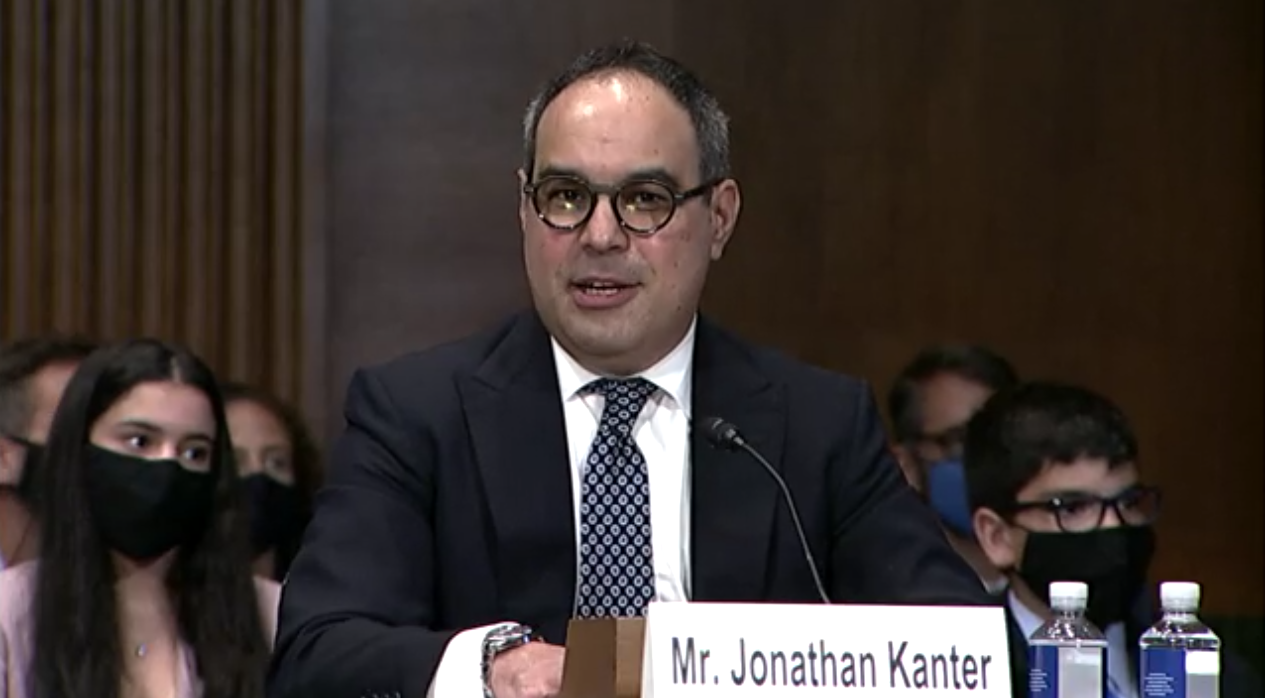DOJ’s Jonathan Kanter: Big Tech Is a Mole That Needs Antitrust Whacking
Antitrust chief says digital monopolists are a threat to liberty

The smarter way to stay on top of the multichannel video marketplace. Sign up below.
You are now subscribed
Your newsletter sign-up was successful
Big Tech is a threat to liberty and a big mole that needs whacking, a la the arcade game where the object is to bash as many of them on the head as is possible. That was the message of the Justice Department’s antitrust chief in a fiery speech to the Fordham Competition Law Institute’s 49th Annual Conference on International Antitrust Law and Policy Friday (Sept. 16) in New York.
Assistant Attorney General Jonathan Kanter, who heads the Justice Department's Enforcement Division, told his audience that the digital economy has produced massive monopolists that have the means to exploit their power “more threatening to individual freedom than ever before.”
The goal of regulators, he said, must be to “unplug the monopolization machine in digital platform industries.”
Those regulators are, principally, the Justice Department and Federal Trade Commission, both of which vet mergers. The FTC is also charged with preventing unfair and deceptive business practices and violations of privacy policies.
Also: FTC Signals Imposing Rules Targeting Commercial Surveillance
Using the Whack-a-mole analogy, Kanter said that abuse of power by digital actors is a constant threat. “If we answer one practice, another arises,“ he said. ”If we address one behavior in one adjacent market, monopoly power may be used to extend the moat further around it.”
Kanter said such monopoly power has not been seen in 100 years, meaning the Standard Oil trust that was broken up by the government in the early 20th century.
He had some suggestions for whacking the Big Tech moles more effectively.
Those included better understanding how such monopolies operate and “all of the mutually-reinforcing strategies that protect the monopoly.” Borrowing another analogy, he said, “If we spend a year examining a single tree, no matter how effectively, we will never have a sense of the forest.”
Another suggestion was not to underenforce for fear of over-enforcing. “Monopolies do not self-correct,“ Kanter said. “We have all seen that in digital markets, monopolies self-sustain. Platforms that are fundamentally collaborative become critical trading partners for entire industries, and without competition have greater power to discourage rivalry. I therefore believe we can no longer be so cautious to avoid overenforcement that we intentionally underenforce the law.
“At the Antitrust Division, we have moved past the error-cost error,“ he added. ”We have been too limited by a self-imposed requirement that we use our most powerful microscopes to examine an exclusionary act before intervening to stop it. We need a wider lens and a greater willingness to pursue and remedy all of the harmful behaviors that make up an exclusionary course of conduct."
The DOJ needs to stop mergers that “tend to create a monopoly,” Kanter said, or that will lead to underenforcement that entrenches market power.
Currently, mergers under a certain size do not trigger rigorous antitrust review. Justice and the FTC are both taking a fresh look at whether that policy has allowed Big Tech to buy up to monopoly by purchasing potential competitors before they get large enough to trigger such reviews.
Also: Sponsors Urge Action on Big Tech Competition Bill
Finally, Kanter put in a plug for the American Innovation and Choice Online Act.
The bill was introduced back in October 2021 by Sen. Any Klobuchar (D-Wis.), chair of the Senate Antitrust Subcommittee and a self-described leading antitrust reformer, and Republican Sen. Chuck Grassley (R-Iowa), the ranking member, who joined Klobuchar at the press conference to press for a vote.
The bill would prevent an online platform from: 1) keeping one business from interoperating with a dominant platform of another business; 2) requiring a business to buy a dominant platform’s products or services in order to get preferred placement; 3) “misusing” a business’s data to compete against it; and 4) biasing search in its favor.
The bill’s targets are chiefly Google, Amazon and Apple, all members of the Computer & Communications Industry Association, which is funding an ad campaign opposing the bill that has blanketed the D.C. airwaves in recent months.
“[L]egislation will be a critical tool to discourage a wide range of exclusionary practices and give would-be competitors confidence that they are protected from retaliation,” Kanter said of the bill. ■
The smarter way to stay on top of the multichannel video marketplace. Sign up below.
Contributing editor John Eggerton has been an editor and/or writer on media regulation, legislation and policy for over four decades, including covering the FCC, FTC, Congress, the major media trade associations, and the federal courts. In addition to Multichannel News and Broadcasting + Cable, his work has appeared in Radio World, TV Technology, TV Fax, This Week in Consumer Electronics, Variety and the Encyclopedia Britannica.

